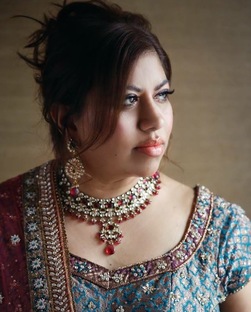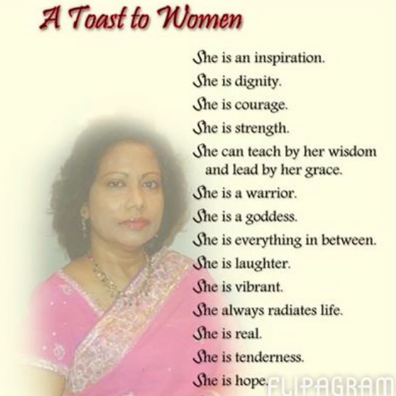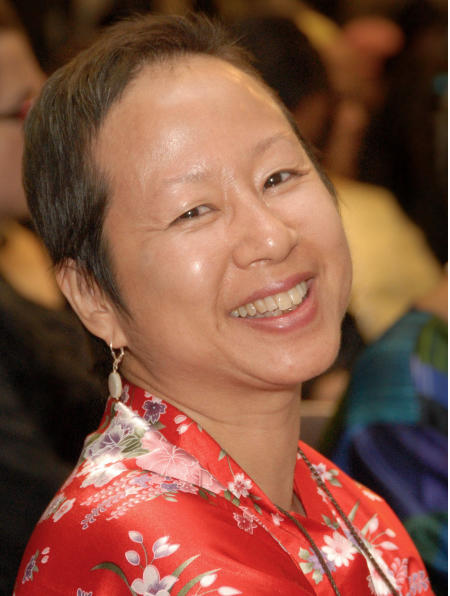
Once we learned that both our immigrant mothers valiantly fought breast cancer, a bond instantly formed between Ilora and I. With only love and respect for our mothers, we have gained strength from the stoic way they handled it. Yet, unlike them, we have chosen not to fight it alone. Her mom's twenty-three year battle with breast cancer left an indelible mark on Ilora ever since she was 12 years old growing up in Jamaica, Queens in the 1980's, a time when few Bengali families lived there. It was the inspiration for Ilora to study medicine and the strength she relied on when she, herself, was diagnosed with Stage I breast cancer in 2014, at age 42.
But even with her personal experience as a co-surviving daughter and her professional experience as a doctor, the news still took Ilora by surprise.
After Ilora overcame the shock, her personal and professional medical background guided her research into her options and decisive decision making. Ilora, "the Doctor", opted for a double mastectomy because of the MRI findings in her right breast and prior ductal issues in her left breast. At the same time, she wanted reconstructive breast surgery done with her own natural tissue transplanted from her stomach, a procedure called "deep flap". Expected to take 10 hours long, the surgery lasted 17 hours instead! Before the surgeon could remove tissue from her stomach, he discovered damage caused by scar tissue from the C-section with the birth of her second child, needed to be repaired first.
And Ilora , as a daughter, wife, and mother of two adolescent boys, had the toughest time dealing with the men in her life, particularly her father.
And Ilora , as a daughter, wife, and mother of two adolescent boys, had the toughest time dealing with the men in her life, particularly her father.
Ilora, the Patient, realized for once she had to do what served her best and disconnected temporarily with some relationships that were not positive. For herself, she posed for a photography session of her body before she lost a part of it, but has yet to go back for the post-operation photo shoot! But she made sure to surround herself with a team of "personal" cheerleaders during her six week initial recovery.
With one microscopic "mets" found in one of her lymph nodes that does not require chemo or radiation, treatment decisions still lie ahead. But, Ilora, knows she will make the right decision for herself. Contemplating a camping trip with her family, she is fulfilling her passions while maintaining her primary care community based practice. For the foundation created in her mom's memory , Ilora raises money for a cancer hospital in Bangladesh.

Ilora also serves as a board member of SAPNA (Bengali for "Dream"), a group that promotes health, social, and economic empowerment of the City's South Asian community. With its Breast Health Initiative, funded by the Susan B. Komen Foundation, SAPNA trains women to be peer educators in the community to encourage South Asian women to get breast screening. When the recruited women come for breast screenings by ScanVan, a mobile van, Ilora is there providing support.
Trained with the psychosocial model, Ilora actively embraces eastern forms of holistic healing in her practice and for herself, especially with the fatigue and pain she experienced after surgery.
Her holistic healing regimen also incorporates ongoing attention to her mental health.
And through this process of healing, Ilora has learned to find strength in "letting go"-something she was unable to do as her mother's caretaker and difficult to do later, as the rock in her own immediate family.
For Asian American women living with breast cancer, Ilora has this sound advice:
